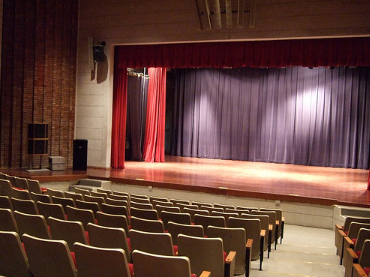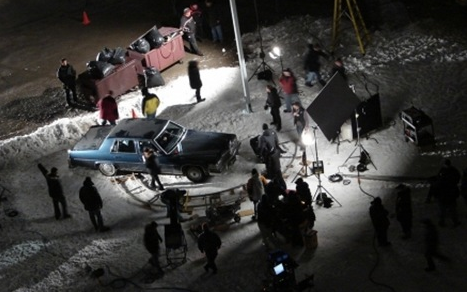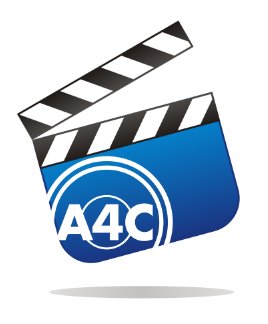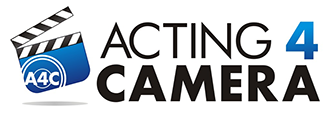By Paul Barry

I have met with some hefty opposition over the years when suggesting there is no difference between acting on stage and acting on screen. My concern is that the major opposition often comes from those exclusively involved in theatre OR film/television, but not both. What bothers me most, is when casting directors define supposedly ironclad differences, for there is a larger difference in my experience between acting in auditions and acting on set or location, than acting on stage versus acting on screen. But when have you ever attended a class dealing with this disparity? Regardless, the most vehement opposition comes from many who have never given it much thought at all. I’ve given it sixteen years of thought, practice, experience and experimentation, and would love to share my discoveries with you.
My experience as an actor has been in both stage and screen, and have also written for both mediums, directed both, cast for both, and taught for both. I do not expect everyone to immediately agree with me; you need to find your own ‘truth’ on the subject. However, in the interests of learning something new, I’d love to think that everyone would consider my carefully explored and researched discoveries. Jack Nicholson himself once said that he doesn’t change anything when transitioning from wide shots to MCUs or even close-ups on screen. And he would know. And yet, most of us will have experienced countless times where our performance needed technical adjustments for on-screen execution, just as our stage performance has often needed alteration for various reasons. It seems that there is even a difference between what you can do on screen based solely on your standing in the industry. If you haven’t found this yourself, take it from me, the same is definitely true on the stage.
This series of blogs on Stage vs. Screen will cover some of my explorations and discoveries over the years, address concerns we actors and directors have about the perceived differences, and hopefully offer a way for stage and screen practitioners to see any differences and similarities as useful guides to creating greater performances, rather than resigning ourselves to accepting the commonly-held misconceptions about the way great theatre and screen performances should be created.
I have taught thousands of students, be they actors or directors of stage and screen, and the immediate response to the question, ‘What’s the difference between the two’, is the ‘size’ of the performance. ‘Big on stage, small on screen’, is the overwhelming response. But there are several problems with this hasty hypothesis. The first, is that I have definitely seen incredible ‘small’ performances on stage, as well as remarkable ‘large’ performances on screen (Johnny Depp, in pretty much everything he does). The second problem is that it depends on the size of the theatre and the size of the screen. Most theatres are actually small, intimate, independent theatres, not massive auditoriums. So, is there a difference between sizes of ‘stage’ performances as well? Screens these days also come in an infinite number of shapes and sizes, from IMAX all the way down to videos on your smart phone. Are there different rules for acting on different sizes of ‘screens’? (David Lynch seems to think there’s a difference) If there is a difference between stage and screen based solely on ‘size’, then by rights there should be. Finally, without knowing the context of the piece, the style, genre, era, or the subject matter, how can one apply a general ‘Big and small’ rule across the board? Well, the answer is, you can’t. At least, not this one.
Do you see now why I’ve spent the last 16 years specifically searching for the similarities instead of the differences….? I’m looking for the best ‘rule’. And the best rule has the fewest exceptions. Already I have explored some of the exceptions to the main alleged ‘rules’ that people have offered in the past, and I’m only just beginning…

There is one immediate – and it would seem, indisputable – difference between stage and screen performances. The volume of your voice. But there is even a problem with this theory. On many occasions I have found (in class and in performance, as an actor, as a director, and as an audience member) that people on stage are shouting in a scene when it actually requires subtlety, tenderness and sensitivity. On many occasions I have found that people on screen mumble or whisper, obscuring my understanding of the words and emotions. The perfect example is the last line Heath Ledger delivers in Brokeback Mountain. I re-wound that line twenty to thirty times before I was smart enough to put the subtitles on. Lucky I saw it on DVD. The theory of, ‘Stage = Loud, Screen = Quiet’, is itself a flawed one. I have personally been told to lower my volume at times on stage and raise my volume on camera. Some large stage productions even mic their actors up, and some sound recordists on set or location can’t get close enough to the actor – or the radio mic sound is unreliable – so the actor must simply raise their voice to be heard. So where’s the rule? Unless you know all the exceptions, ‘Loud vs. Quiet’ isn’t a rule. At least, not a reliable one.
Finally, many in-depth discussions regarding this topic eventually arrive at the various ways both stage and screen allow you to get away with things, rather than to do things better. ‘You can’t fake it on camera’, as though you can on stage. ‘You only get one take on stage’, as though you can mess around until you find the moment on screen. ‘There’s minimal rehearsal time on screen’, as though unsupervised rehearsal prior to a film/TV shoot is an impossibility. Can you see now how lamenting the differences fosters a getting away with attitude, or resignation, instead of using the similarities and differences of each medium to transform the process of the other, and create greater performances along the way? On close examination there are many differences between stage and screen, but my contention is that perhaps there needn’t be.
So, if ‘size’ and ‘volume’ are the two major arguments that people make for there being a ‘huuuuge difference between the two mediums’, and they have significant exceptions, then all the other alleged differences (I have touched on some others already) suddenly become a little shaky too. This series of Stage vs. Screen blogs will delve into them all and – with your thoughts, questions, objections, and experience – help us arrive at some ‘rules’, with few, if any, exceptions. Remember, the aim is to make your job easier, not more difficult.
Obviously, there are differences between performing for stage and screen, but trust me, the useful differences are not so obvious. To learn what they are, watch this space for Stage vs. Screen (Part Two)….
Paul Barry is an actor, director, writer, teacher and blogger. He co-owns Acting 4 Camera and Showreels Australia. He lives in LA, but regularly teaches via Skype, all around the world.
(The blogs you see on www.acting4camera.com are free, but they don’t write themselves. If you find the information useful, feel free to donate below to keep them coming. Your contribution of any amount is graciously welcomed!)





